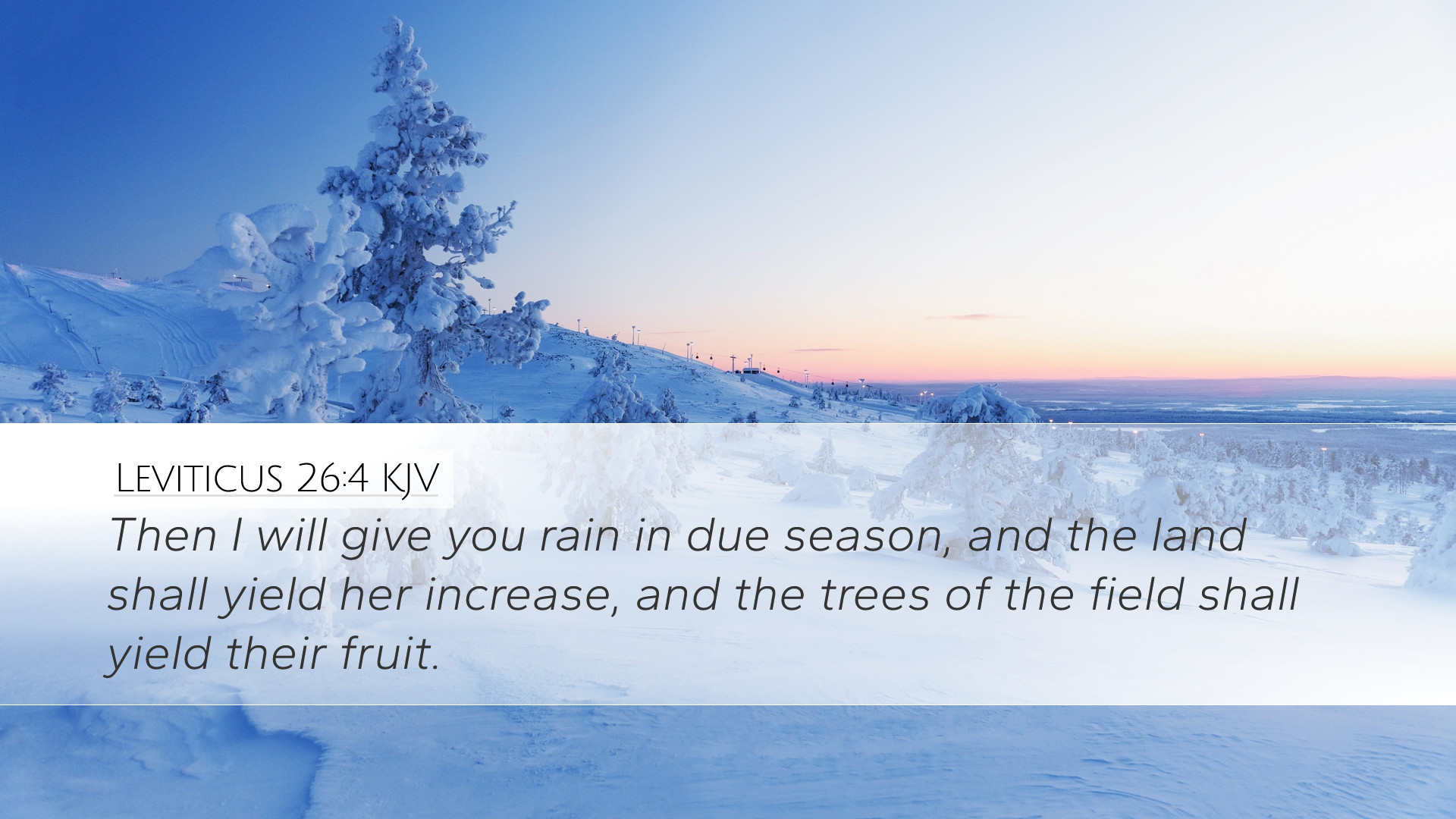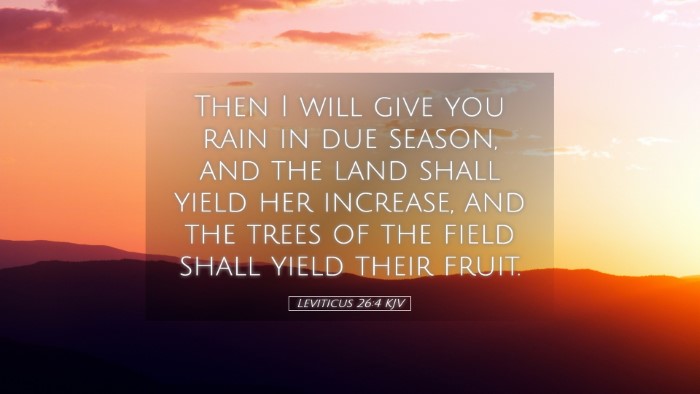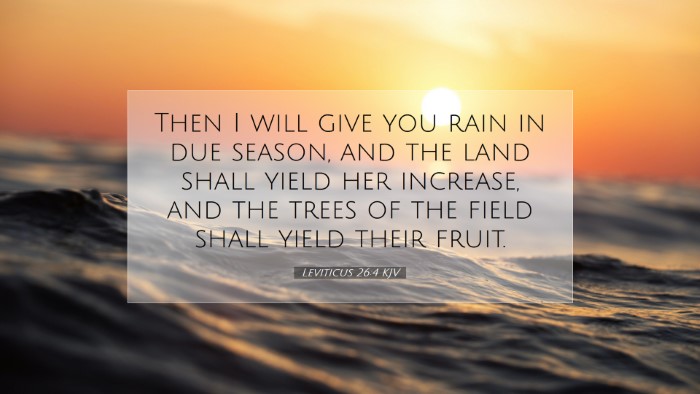Commentary on Leviticus 26:4
In Leviticus 26:4, the Lord promises to bless His people with provision and abundance in the land, emphasizing His covenant relationship with Israel. This verse serves as a key element in the broader context of God's covenant promises, encapsulating themes of divine favor, faithfulness, and moral responsibility.
Text of Leviticus 26:4
"Then I will give you rain in due season, and the land shall yield her increase, and the trees of the field shall yield their fruit."
Interpretation and Themes
This verse is rich in theological implications, reflecting God’s character and His intentions for His people.
1. Divine Provision
Matthew Henry remarks that the promise of rain signifies God's direct involvement in creation and His provision for the sustenance of life. Rain is not merely a natural phenomenon but a blessing from God, indicative of His care for His people.
- Rain in Due Season: The emphasis on "due season" highlights the perfect timing of God's blessings. It teaches that God's provision is not only generous but also timely, ensuring that His people have what they need when they need it.
- Yielding Increase: The mention of the land yielding its increase speaks to the faithfulness of God to provide abundantly. It indicates a direct correlation between obedience to God's commands and the blessings of prosperity.
2. Covenant Relationship
Albert Barnes interprets this verse as a reaffirmation of the covenant between God and Israel. The blessings of rain and fruitful harvests are contingent upon the people's faithfulness to the divine law.
- Conditional Blessing: The blessings promised are not automatic but conditional upon Israel's adherence to God's statutes. This reflects the overarching theme of the book of Leviticus, which outlines the expectations of holiness and obedience.
- Sign of Favor: The fruitful land serves as a sign of God's favor and presence among His people. It reaffirms the idea that obedience results in divine favor and prosperity.
3. Assurance of Success
Adam Clarke notes that the prosperity described is meant to instill confidence among the Israelites. Knowing that their labor could yield such bountiful results would encourage them to remain steadfast in their faith and practices.
- Fruits of Faith: The trees yielding fruit symbolize the results of living in accordance with God’s will. Just as trees naturally produce fruit when properly nourished, so too do believers produce good works when they abide in God’s covenant.
- Hope for Future Generations: The abundance promised serves to instill hope not just for the present generation but for future generations as well, showing the enduring nature of God's promises.
4. Theological Implications
This verse leads to significant theological reflection regarding God's sovereignty in creation and His providential care for His creation.
- Sovereignty Over Nature: God's control over the seasons and agricultural cycles illustrates His sovereignty over the natural world. This encourages believers to trust in His authority over all aspects of life.
- The Role of Human Agency: While God promises blessings, human obedience plays a crucial role. This interdependence emphasizes moral responsibility, underpinning a biblical worldview that balances divine sovereignty with human action.
Historical Context
Understanding the historical and cultural context of this passage is vital for its interpretation.
- Context of Ancient Israel: In the agrarian society of ancient Israel, rain and fruitful harvests were essential for survival. The people relied on agricultural yields for their sustenance and economic stability.
- Levitical Code: Leviticus serves as a manual for holy living, providing guidelines for worship, moral conduct, and community relations. This passage reinforces the consequences of faithfulness versus disobedience.
Practical Applications for Today
The principles found in Leviticus 26:4 continue to resonate with believers today.
- Trust in God’s Provision: Just as God promised to provide for Israel, contemporary believers can trust in God's provision. This requires a commitment to remaining within the parameters of His will.
- Obedience and Blessing: The connection between obedience to God's commands and experiencing His blessings serves as a reminder for Christians to strive for holiness in their lives.
- Understanding God’s Timing: The idea of "rain in due season" invites believers to be patient and trust in God's timing, recognizing that He orchestrates the events of life for our good and His glory.
Conclusion
Leviticus 26:4 is a poignant reminder of God’s faithfulness to His covenant, highlighting the dual themes of divine provision and human responsibility. By understanding this verse within its theological, historical, and practical contexts, pastors, students, and theologians can appreciate the depth and richness of God's promises, encouraging a life lived in accordance with His will.


